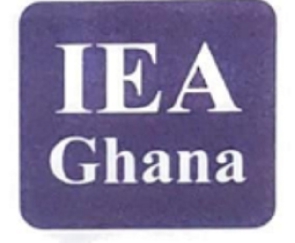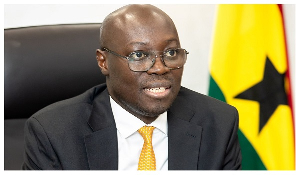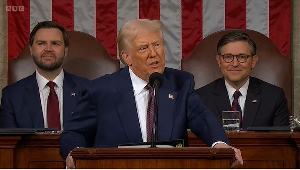In May this year, the IMF approved Ghana’s 17th financial bailout programme supported by a US$3 billion Extended Credit Facility (ECF) arrangement. Following the approval, Ghana received the first tranche of US$600 million. Ghana’s ECF-supported programme was approved against the backdrop of an escalating economic crisis characterised by slowing growth, rising inflation, steep currency depreciation, mounting debt, depleting reserves, loss of access to international capital markets, downgraded sovereign debt and eventual default on external debt payments.
The crisis came to a head in 2022, with real GDP growth slowing to 3.1%; near-record inflation of 54.1%; fiscal deficit/GDP of -11.2%; debt/GDP of 92.4%; cedi depreciation of 30.0%; and international reserves dropping to just 1.2 months of imports.
Ghana’s economic crisis has been attributed by the Government largely to the Covid pandemic and the Russia-Ukraine war, which, together, have disrupted supply chains and driven up food and fuel prices across the globe. On the other hand, the opposition and Civil Society Organisations (CSOs) have blamed the crisis largely on domestic economic lapses, pointing to the fact that Ghana’s peers that faced the same external shocks have fared much better.
In a statement accompanying Ghana’s ECF approval, the IMF Board noted that large external shocks in recent years had exacerbated Ghana’s pre-existing fiscal and debt vulnerabilities, resulting in a loss of international market access, increasingly constrained domestic financing, and reliance on monetary financing of the government.
The Board said further that decreasing international reserves, Cedi depreciation, rising inflation and plummeting domestic investor confidence eventually triggered an acute crisis. The Board statements suggest clearly that external shocks compounded Ghana’s existing vulnerabilities, which emanate from underlying structural weaknesses in the economy and chronic policy lapses.
According to the ECF document, the facility is geared to “restoring macroeconomic stability and debt sustainability, while laying the foundations for higher and more inclusive growth.” Measures intended to achieve these objectives include: i) Fiscal adjustment to complement debt restructuring;
ii) Tight monetary and flexible exchange rate policies; iii) Policies to address structural weaknesses and vulnerabilities that contributed to the current crisis; iv) A distribution of the adjustment burden, with measures to mitigate the impact on the most vulnerable; and v) Growth-enhancing structural
reforms.
The 2023 Budget presented by the Minister of Finance in November 2022 essentially reflected key policies and targets envisaged in the ECF programme. Some of the targets—as further amended in the Minister’s Mid-Year Budget Review that he presented in July 2023—included real GDP growth of 1.2%, annual average inflation of 42.2%, fiscal deficit/GDP of -4.6%, debt/GDP of 84.9%, and international reserves of 1.4 months of imports. In the Mid-year Budget Review, the Minister expressed an optimistic view of the economy. Stating that key macroeconomic indicators, such as growth, inflation, the fiscal deficit, exchange rate and reserves, had shown improvements, he concluded that the economy “had turned the corner.”
This view attracted a heated debate as to whether it was justified, since, in many peoples’ opinion, the figures presented in the Mid-Year Review of the 2023 Budget did not suggest that the economy was even near the corner, let alone
turn it. The IMF staff also, after conducting the first review of Ghana’s ECF programme together with the conclusion of the 2023 Article IV Consultation with Ghana in October, announced that the team and the Ghanaian authorities had reached a staff-level agreement (SLA) that could pave the way for disbursement of the second tranche of US$600 million once Ghana had received the necessary financing assurances from its official creditors.
The IMF staff further noted that the Ghanaian authorities had adjusted macroeconomic policies, successfully completed their domestic debt restructuring operation, and launched wide-ranging reforms. They said these actions were
“already generating positive results,” as growth in 2023 had proven more resilient than initially envisaged, inflation had declined, the fiscal and external positions had improved, and the exchange rate had stabilized.
The positive sentiments expressed by the Minister and the IMF staff on the
economy, when many experts saw the situation differently, raised doubts about the credibility of those sentiments.
In this article, we seek to throw more light on the state of the economy by presenting and assessing key macroeconomic and social indicators. We also discuss the key issues we expect the 2024 Budget to focus on in addressing the challenges facing the country.
Developments in macroeconomic and social indicators:
Macroeconomic indicators:
Ghana’s ECF programme contains macroeconomic data for the entire programme period, 2023-26, which is quite revealing. Real GDP growth is projected to decline from 3.1% in 2022 to just 1.5% in 2023, recovering slightly to 2.8% in 2024 and then to 4.7% in 2025 and 5.0% in 2026. These growth projections are, however, not sufficiently ambitious. We have abundant natural and human resources that can be leveraged for higher growth. We can scale up public and private investment.
We can import additional capital and technology that we lack through Foreign Direct Investment (FDI) and foreign labour. Put together, we should be able to grow the economy between 7-10% over the medium term. We should not allow others to impose unambitiously low growth rates on us when we know we have the potential to grow much faster. We only need to harness that potential through
the right policies.
In the ECF programme, inflation is projected to decline from 54.1% in 2022 to 29.4% in 2023 and 15.0% in 2024 before reducing to the Bank of Ghana (BoG) central target of 8.0% in 2025 and 2026. These projections are equally unambitious. They just validate Ghana’s high inflation history.
If we use the right instruments, we should be able to reduce inflation markedly in this country. What we need to do is to supplement the demand-based Inflation Targeting (IT) framework used by BoG with measures targeted to the supply and cost drivers of inflation, particularly food prices, fuel prices, transport fares and exchange rate depreciation. Our peers with the same economic structures as ours have been able to achieve much lower rates of inflation using the appropriate demand and supply tools.
Even advanced countries such as the UK and the US are supplementing the use of interest rates in controlling inflation with additional tools directly targeting supply or cost factors, so why not Ghana, where these factors are more dominant?
Government revenue/GDP is projected in the ECF to increase from 15.7% in 2022 to 16.8% in 2023, 17.3% in 2024, 17.8% in 2025 and 18.7% in 2026. This implies an increase of 3.0 percentage points over the 4 years, 2022-26. This is being touted in the programme as a remarkable achievement.
However, we cannot celebrate this when our middle-income peers have revenue/GDP
of 25-30%. We have repeatedly argued that we can raise our revenue/GDP significantly within a short space of time. We only need to do the right things, such as introducing more innovative taxes, leveraging technology to expand and accelerate collections, roping the informal sector into the tax net, strengthening tax administration to stem evasion and improve compliance, plugging the several loopholes in the tax system and checking tax fraud and corruption.
Then, there is the huge low-hanging fruit—natural resource receipts! We only need to demand more favourable fiscal regimes for the extractives sector and we can raise billions—if not trillions—of dollars from the sector.
Meanwhile, the overall fiscal balance is projected to decrease from -11.0% in 2022 to -7.5% in 2023, increase to -8.0% in 2024 and then decline progressively to -6.7% in 2025 and -5.7% in 2026. The fiscal balances show an appropriately strong, front-loaded adjustment in 2023.
However, subsequently, the annual adjustments are moderate, the reason the overall fiscal balance is not restored during the programme period to the 5% ceiling in the Fiscal Responsibility Act (FRA), which the Minister got Parliament to suspend in early 2020, citing the effects of external shocks to
invoke the escape clause in the Act. Precisely because of the unambitious fiscal adjustments under the programme, the projected public debt/GDP remains high. It rises from 88.1% in 2022 to 98.1% in 2023 (which looks strange, given the strong fiscal adjustment in 2023) and thereafter declines gradually to 92.0% in 2024, 90.2% in 2025 and 88.4% in 2026. A stronger fiscal adjustment, entailing a strong revenue mobilisation drive combined with an equally strong expenditure control and rationalisation effort, could reduce the debt significantly during the period, while at the same time creating space for under-funded development and social spending.
Social indicators:
Ghana’s challenges are not limited to only economic indicators. Social indicators are equally dire. The Statistical Service’s Ghana Annual Household Income and Expenditure Survey contains a Report on Food Insecurity, Multidimensional Poverty and Labour Statistics as of Quarter 2 of 2022, which demonstrates the severity of the social situation.
The Report indicates that 13.0 million (42.0%) Ghanaians faced Food Insecurity. The problem is more severe in the rural areas (55.3%) than in the urban areas (33.5%). This situation is inconceivable in a country with a vast arable land, which can support wide-ranging food crops.
In terms of Multidimensional Poverty, which comprises several indicators of living conditions, education and health, 14.4 million (46.7%) Ghanaians were multidimensionally poor. The incidence is highest in the North East Region (NER) (77.6%) and lowest in the Greater Accra Region (GAR) (22.3%). Millions of Ghanaians face inadequate, poor and costly health services, with the poor being
particularly vulnerable. Reports of hospital bed shortages with pregnant women having to sleep on bare floors, two babies sharing a single incubator and the closure of dialysis facilities amid escalating costs leave much to worry about and a lot to be desired. The daily feeding amount for basic school students was reported in the 2023 Budget to have been increased to GHS1.20 (equivalent to about 10 US cents).
This is pitifully inadequate. All of these statistics are evidence of the degree and pervasiveness of poverty and deprivation, ironically, in a country with abundant resources.
In terms of unemployment, the Report indicates that the national unemployment rate was 13.9% as of Q2-2023. The unemployment rate for the youth would certainly be much higher. These figures could even be an understatement of the true unemployment situation, especially when it comes to assessing people’s ability to earn living incomes and also their general poverty status, since a lot of people are under-employed, engaging in menial economic activities.
Ghana’s economic performance vis-à-vis that of Sub-Sahara Africa:
It is important to place Ghana’s economic performance in context to better understand the real factors behind it. And there is no better context than that of Ghana’s Sub-Sahara African (SSA) peers. Fortunately, the IMF has published selected macroeconomic data for Sub-Saharan Africa (SSA) in its October 2023 edition of the Regional Economic Outlook (REO) for Sub-Saharan Africa. This may provide a good context to judge Ghana’s relative performance against that of SSA
with similar economic characteristics and that were also impacted by similar external shocks.
The data provided in the REO is on i. Real GDP Growth; ii. Inflation; iii. Fiscal Balance; iv. Government Debt; and v. International Reserves, and span 2011-2024, with 2023 and 2024 data being projections.
The data shows that Ghana recorded higher growth than the SSA average between 2011 and 2021, which is remarkable. However, it has to be said that Ghana started oil production in late 2010 and, together with higher output and prices of other extractives, this contributed to Ghana’s superior growth performance over the period. Stripped of the extractives, Ghana’s growth during the period was more modest. In the period 2022-24, however, Ghana’s real GDP growth dips below the SSA average, indicating that Ghana has been more severely impacted by external shocks than the rest of the SSA.
Ghana’s real GDP growth is projected to decline sharply, particularly during 2023-2024, and this is partly due to the severe fiscal retrenchment imposed under the ECF programme together with high inflation and high-interest rates, which inhibit investment.
In terms of inflation, between 2011 and 2019, Ghana recorded higher rates than the SSA average. Between 2020-21, Ghana’s inflation was about equal to the SSA average. However, during 2022- 24, Ghana’s inflation is much higher than the SSA average, which, again points to the importance of domestic drivers of inflation, essentially food deficits, exchange rate depreciation and fiscally- fueled demand pressures.
In terms of fiscal performance, during the entire period 2011-2024, Ghana’s fiscal deficit is much higher than the SSA average. However, the gap is projected to narrow significantly during 2023- 2024, a period when Ghana is expected to undertake a strong fiscal adjustment under the ECF programme. Ghana’s higher fiscal imbalances may be attributed largely to domestic policy lapses, essentially chronic revenue deficits along with expenditure rigidities and overruns.
In terms of the public debt, for the entire period, 2011-2024, Ghana’s debt/GDP is significantly higher than the SSA average. This is the direct result of higher borrowing to finance the higher deficits.
In terms of international reserves, throughout the entire period 2011-2024, Ghana’s international reserves in terms of months of imports are much lower than the SSA average. This explains why Ghana’s currency has depreciated more rapidly, especially during 2022-2023 when reserves have been very low.
Clearly, Ghana performs poorly compared with the rest of SSA in almost all the key macroeconomic indicators. Since all the SSA countries have been impacted in a similar fashion by external shocks, Ghana’s poorer performance reflects its greater existing vulnerabilities, which reflect domestic policy lapses.
Expectations of the 2024 budget:
The Minister of Finance is expected to present the 2024 Budget on November 15. The Budget is being presented against the backdrop of prevailing economic difficulties. Unfortunately, Ghana’s budgets for the next three years are constrained by the ECF programme, which has imposed strict measures and targets, some of which are performance criteria for disbursement of bailout funds.
This leaves little room for manoeuvre by the Government.
Our expectations of the 2024 Budget are based on measures that we deem important for the short-term stability of the economy as well as its long-term growth. Some of the measures may not have been considered by the ECF programme and could still be taken into consideration without significantly compromising the integrity of the programme.
Intensify revenue mobilisation:
Ghana has a long challenge with revenue mobilization. Ghana’s revenue/GDP has been around 15- 16%, which falls considerably short of the middle-income countries’ average of 25-30%. As we pointed out above, revenue targets under the ECF are still not sufficiently ambitious, even after the introduction of new taxes. New taxes or higher rates for existing taxes are really not the answer
since the limited number of taxpayers are already overburdened.
The solution lies in innovations in tax policy, plugging loopholes in the tax system and strengthening tax administration, among others. Specifically, we want the 2024 budget to focus on the following areas:
Streamline the tax system:
Plug tax loopholes, including those relating to trade mis-invoicing, underexploited property taxes, transfer pricing and money laundering;
Reinforce tax compliance, including through the use of technology for assessments and payments;
Check tax fraud and corruption through the use of technology and enhanced surveillance methods;
Streamline import duties to promote imports through our ports and boost associated taxes, while easing the tax burden on importers that finds its way into local prices of imports; and
Abolish taxes generally regarded as of nuisance-value, outdated, multiple or posing health risks, such as E-Levy (multiple/nuisance-value), Covid Levy (outdated), Growth and Sustainability Levy (outdated), sanitary pad tax (potential health risk) and condom tax (potential health risk), etc.
Tap natural resource receipts intensely:
Our natural resources represent the low-hanging fruit to boost Government revenues. Ghana is exceptionally endowed with natural resources, including gold, manganese, bauxite, lithium, uranium, cobalt, copper, iron ore, oil and gas, worth trillions of dollars. Unfortunately, we allow foreign companies to take the bulk of our resources away through colonial-type concession contracts.
The government must take steps to ensure that extractive contracts offer maximum returns to Ghana, including through domestic-refining provisions to boost value-addition. The 2024 Budget must indicate a clear plan to this end.
Rationalise/Streamline expenditure:
Out-of-control expenditures in the face of inadequate revenues are the reason for the prevalence of high deficits whose financing through borrowing has led to our debt crisis. There is room to rationalize/streamline expenditure, reduce waste and increase efficiency. Both economic-classified expenditure, i.e. recurrent and capital expenditure, and sectoral-classified expenditure need to
rationalized/streamlined to achieve appropriate balances and optimum outcomes.
Control/Streamline recurrent expenditure:
Recurrent expenditure has always been the elephant in the room, consuming most of government revenue. This is the result of an oversized public sector, rigid statutory obligations, unauthorized expenditure commitments by MDAs and wastage in the expenditure management system.
The government has imposed some expenditure cuts under the ECF, including a cut on executive pay and limits on expenditures by MDAs. Yet, there is still room to further streamline expenditure to avoid waste and improve efficiency. Expenditure on goods and services, including utilities, travel, health care, entertainment and general administration, is a candidate for such streamlining.
A lot has been said about the size of the government and the Office of Government Machinery (OGM), which consumes a sizable amount of the budget. Downsizing the government and the OGM is necessary to reduce overall government expenditure. Doing so will send the right signal about the need for belt-tightening by all in these difficult times.
Increase capital expenditure to foster growth:
Capital expenditure (CAPEX) has been continually squeezed to make room for an ever-expanding recurrent expenditure. This is inimical to the growth of the economy. It is about time to redress the balance in our budgets. It is suggested to scale up CAPEX to 5-10% of GDP during the ECF period, 2023-26, from the current unacceptably low level of 3-4% to boost growth. It has to be pointed out, however, that it is not just enough to allocate higher amounts to CAPEX, but it is equally important to pay attention to efficiency in capital spending to ensure maximum outcomes.
Pay more attention to productive and critical sectors of the economy:
Some sectors of the economy are important for supporting growth or providing essential social services. However, these are not given the attention they deserve in terms of resource allocation.
Sectors deserving more budgetary allocations include:
Agriculture: Agriculture remains the mainstay of the economy, employing over 60% of the labour force. Yet, because of low productivity, food is costly, consuming 44% of Ghanaian’s monthly budget, and food security for all remains a dream. Meanwhile, our budgets do not allocate adequate amounts to agriculture. The 2024 Budget must increase allocation to agriculture. Most importantly, the allocation must support productivity-enhancing measures as well as effective distribution and marketing of agricultural produce.
Infrastructure: Ghana’s infrastructure is in a deplorable state, inhibiting economic activity and growth. The government’s declaration of 2021 as the “Year of Roads” is yet to see the light of day, with urban roads, highways and feeder roads all showing marked deterioration across the country, with even the Tema Motorway not being spared. The 2024 Budget must make adequate allocation to infrastructure, particularly roads and railways to bring them up to acceptable standards.
Energy: The energy sector is beset by several challenges. Most important is the huge debt in the sector that has been crippling the budget from huge annual payments. The high indebtedness of the sector is the result of huge inherited debts from previous Power Purchase Agreements (PPAs) and high running costs of energy companies unmatched by commensurate power tariffs. Cross debts are said to have piled up in the entire energy supply chain from ECG to GRIDCO to VRA to Ghana Gas to WAPCO, almost crippling the sector. The 2024 Budget must include a plan to address the sector’s debt comprehensively. This should involve a strategy to renegotiate the PPAs along with the adoption of a tariff regime that ensures genuine- cost recovery along the energy supply chain.
Health: Our health system is in a deplorable state. Facilities are poor, access is limited and affordability is difficult for millions. While budgetary allocations to the health sector may appear high, it is known that most of it goes to the payment of salaries and administrative expenses, while allocations to facilities get squeezed out.
It is important to redress the balance, and we expect the 2024 Budget to ensure that health facilities receive a commensurate share of the overall health sector allocation.
Adequate support for primary health care is particularly important as it benefits the most vulnerable. In this regard, we expect the Budget to provide enough funding to the NHIS so that the poor can afford health care. To this end, we call for the uncapping of the National Health Insurance Levy (NHIL) so that the full proceeds will be allocated to the NHIS to enable it to extend coverage to critical diseases and care like cancer and dialysis.
Education: Education takes a chunk of our budgets, yet facilities are very poor across the board. This calls for streamlining of education expenditure. The Budget must ensure that facilities receive adequate allocation while monitoring should be strengthened to ensure that allocated funds are spent on targeted items. The FSHS scheme must be reviewed to ensure that adequate funds are allocated to facilities and feeding.
For feeding specifically, the fee of GHS1.20 (10 US cents) currently paid by the government per basic-school pupil should be increased to at least GHS6.00 (50 US cents). Parents who can afford to pay should be invited to contribute to the feeding of their wards while also paying for other items like uniforms, books and other teaching and examination materials. This will ease the burden on the budget and allow the government to improve other facilities like classrooms and furniture.
Sanitation: The state of sanitation in the cities and other urban areas is an eyesore. This belies the President’s campaign promise to “make Accra the cleanest city in Africa.” The Budget must allocate more funds to sanitation. However, it is important to ensure that allocated funds are used efficiently to reduce waste and improve outcomes.
Other key national assets: It is a pity that some of our key national assets have disappeared or have been run down. What happened to important assets like the national airline, Ghana Airways, and the national shipping line, Black Star Line?
Why can’t we restore them since they provide important services and their absence means that we have to pay huge amounts of foreign exchange for travel, freight and insurance services to foreign companies when we could rather have earned income from these services? What is going on with another important asset, Tema Oil Refinery (TOR)? Why can’t we find the money required to rehabilitate it so that we can refine our own oil as well as other countries’ oil for profit? We expect the Budget to start the process of restoring these important national assets, which are key to our economic growth and development.
We cannot allow the ECF programme to stand in our way in pursuing these important national goals.
Provide protection against economic hardships:
Ghanaians are experiencing severe hardships from the economic crisis and some of the ECF conditions. These include high inflation, high utility tariffs, high taxes, effects of abolition or reduction of consumer subsidies, slow pace of salary increases, slow pace of public hiring, and effects of debt restructuring. The government has committed under the ECF programme to strengthen social spending to protect vulnerable groups. These commitments must be honoured and even reinforced as necessary.
The 2023 Budget reportedly doubled Livelihood Empowerment Against Poverty (LEAP) grants involving cash payments to poor households. It is expected that the amounts will be revised in the 2024 budget so that they do not become eroded by inflation. The scheme should also be reviewed and expanded as necessary to capture more eligible beneficiaries.
The basic school feeding amount was increased in the 2023 budget from GHS0.98 to GHS1.20 (10 US cents) per pupil, which is woefully inadequate to provide a decent meal for the pupils. As we mentioned above, we propose that the amount be increased in the 2024 budget to at least GHS6.00 (50 US cents) as a matter of urgency. If the numbers involved are such that the increase will overburden the budget, then the government must consider cost-sharing with parents.
The National Health Insurance Scheme (NHIS) which is intended to help the poor with affordable health care, has been inadequately funded, leading to widespread denial of care to eligible patients by service providers. Government needs to prioritise NHIS funding while broadening its coverage and expanding the benefits package to provide adequate protection for vulnerable groups, while, as we have said above, including cancer and dialysis in the scheme.
In general, persistent inflation has sustained a high cost of living and severe economic hardships in Ghana. Bank of Ghana’s exclusive use of a demand-based Inflation Targeting (IT) framework has generally been ineffective in controlling inflation that has strong supply and/or cost undercurrents. While the Bank of Ghana has primary responsibility for price stability, it is obliged to support the general economic policy of the government. The fight against inflation should be a coordinated effort between the Bank of Ghana and the government, which has overall responsibility for the management of the economy. The effort to tackle inflation should ensure that the IT framework is supplemented by measures targeted directly to the supply/cost factors, particularly food prices, fuel prices and the exchange rate. The 2024 budget should indicate a clear path to taming inflation on a durable basis and, thereby, reducing its associated economic hardships.
Press Releases of Wednesday, 15 November 2023
Source: Abel Nyarko-Asomani

















